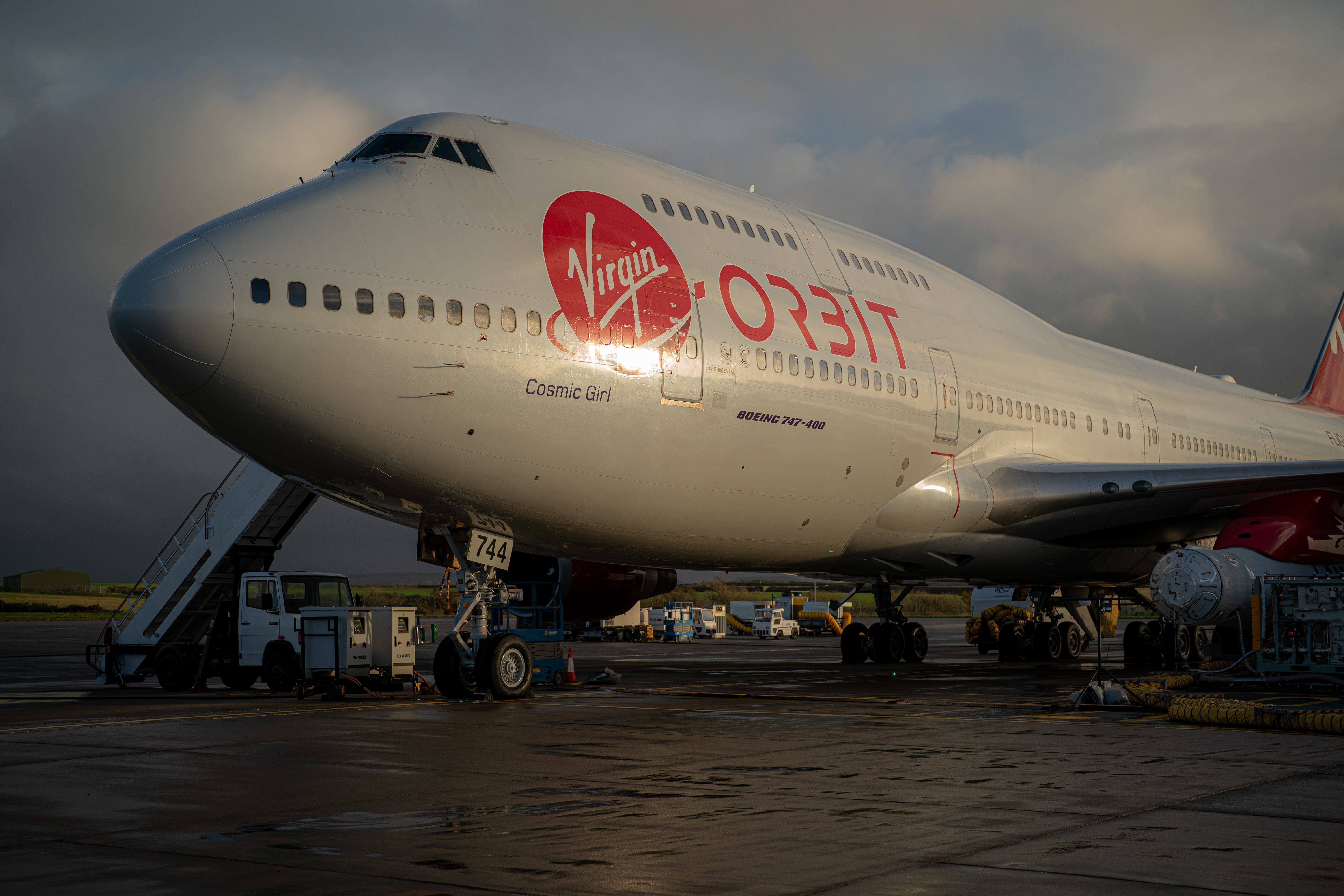Spaceport Cornwall gets green light for lift-off
The Civil Aviation Authority announced that the site in Newquay can be used for sending satellites into space.

Spaceport Cornwall has been awarded an operating licence, enabling it to host the UK’s first space launch.
The Civil Aviation Authority (CAA) announced that the site in Newquay can be used for sending satellites into space.
The first mission is expected to be conducted by entrepreneur Sir Richard Branson’s Virgin Orbit company in the coming weeks.
A repurposed Virgin Atlantic Boeing 747 aircraft named Cosmic Girl and Virgin Orbit’s LauncherOne rocket travelled from California in the US to Spaceport Cornwall last week.
Their mission has been given the title Start Me Up in tribute to British band The Rolling Stones.
The 747 will take off horizontally from the new facility at Cornwall Airport Newquay while carrying the rocket, before releasing it at 35,000ft over the Atlantic Ocean to the south of Ireland.
The plane will return to the spaceport, while the rocket will ignite its engine and take multiple small satellites into orbit with a variety of civil and defence applications.
They will be the first satellites launched into space from Europe.
Satellites produced in the UK have previously needed to be sent to foreign spaceports to get them into space.
CAA chief executive Richard Moriarty described the awarding of the first spaceport licence in the UK as “an historic moment”.
He went on: “We’re proud to be playing our part in facilitating the UK’s space ambitions through assessing the safety, security and other requirements of these activities.
“This is another major milestone to enable this country to become a leading launch nation.”
Transport Secretary Mark Harper, who was required to give consent to the regulator to issue the licence, said the “cosmic cornerstone is being laid for the UK’s first orbital space launch”.
He added: “Virgin Orbit’s planned launch reinforces our position as a leading space nation as we look to the future of spaceflight, which can spur growth and innovation across the sector, as well as creating thousands of jobs and apprenticeships.”
Melissa Thorpe, head of Spaceport Cornwall, said it is “ready to open up the use of space for good”.
Virgin Orbit chief executive Dan Hart said the licence is a “key preparatory milestone” and Virgin hopes to launch its first rocket from the site “in the coming weeks”.
Spaceport Cornwall is one of seven spaceports being developed across Britain.
The first vertical space launch is expected to take place next year from the planned SaxaVord Spaceport on Unst in Shetland.
A public consultation on the environmental effects of the spaceport was launched by the CAA last week.
The locations for four other proposed spaceports in Scotland are: the A’ Mhoine peninsula in Sutherland; Prestwick in South Ayrshire; Campbeltown in Argyll and Bute; and North Uist in the Outer Hebrides.
Another spaceport has been planned at Llanbedr, Gwynedd, in North Wales.
The Government hopes commercial space launches will be worth £3.8 billion to the UK economy over the next decade.
Bookmark popover
Removed from bookmarks